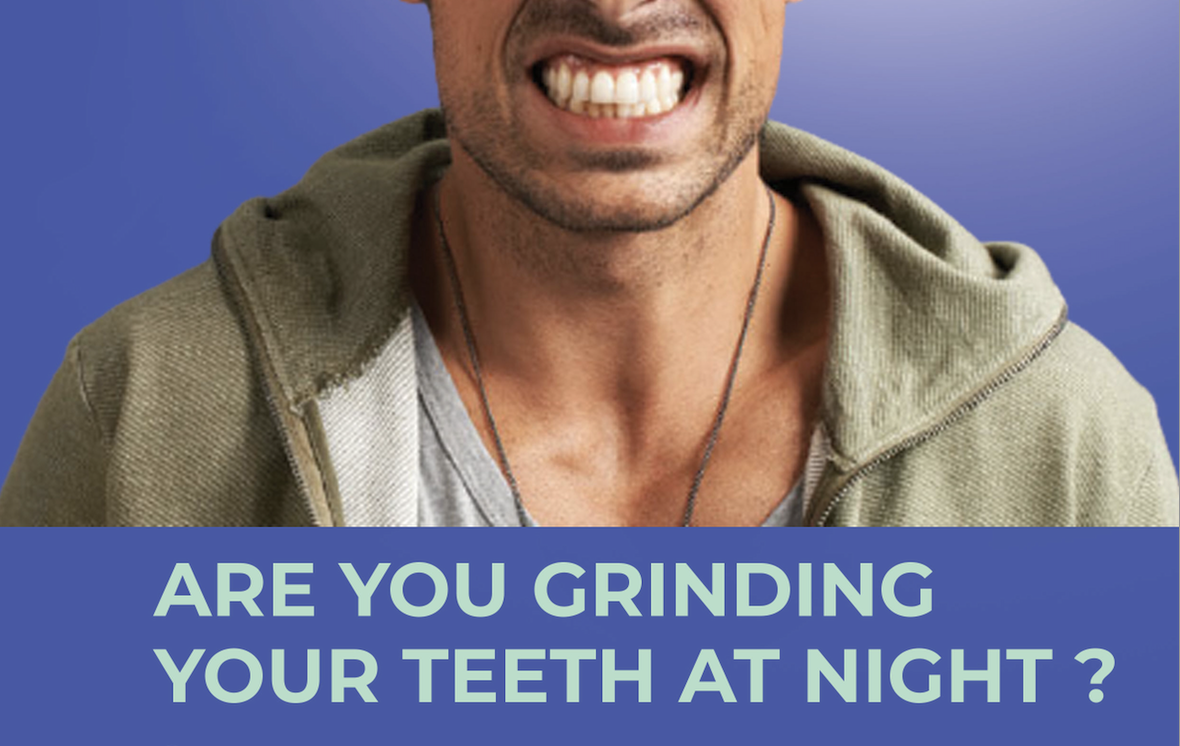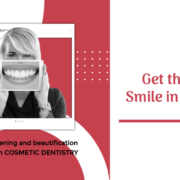When you think of mouth cancer, the first thing that probably comes to mind is smoking. This is because the majority of cases of this type of cancer are directly linked to tobacco use. However, other activities — such as drinking excessive amounts of alcohol for extended periods — are also thought to increase the risk. In addition, there are certain circumstances in which an individual may be more likely to develop this condition than others. For example, it has been suggested that wearing a night guard may not necessarily increase your risk of developing mouth cancer. Let’s take a closer look at whether this is true and what the risks and implications might be if you wear one.
What is a Mouth or night guard?
A mouthguard is a type of device that is worn in the mouth during high-impact sports or other activities. It is designed to protect the teeth, gums, and jaw from injury during impact. Common sports that require athletes to wear this device include tennis, basketball, rugby, hockey, and football, and other activities that can cause injury to the mouth may also require a mouthguard as well.
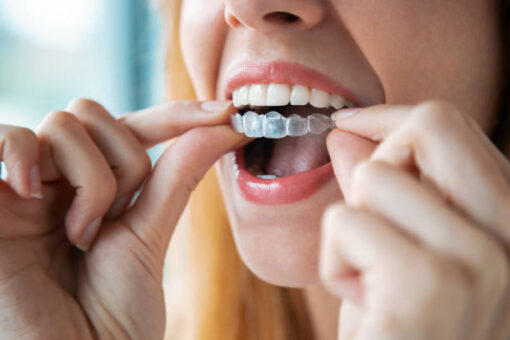
A mouthguard comes in two main types: sports and custom-made. There are many different types of sports mouthguards available to purchase over-the-counter, including boil-and-bite mouthguards. A custom-made mouthguard is specially designed for each person according to their teeth and bite and is highly effective at protecting the teeth. Mouthguards are dental devices that cover your teeth. A mouthguard protects your teeth, tongue, gums, and cheeks from trauma caused by teeth grinding or sports injuries.
Children or adults might need a night guard:
- Grinds teeth (bruxism).
- Plays a contact sport like basketball, football, lacrosse, hockey, or soccer that increases the risk of a hit to the face.
- Takes part in noncontact sports or activities with a high fall risk, like ice skating, gymnastics, or biking.
What are the types of night guards?
There are two main categories of mouthguards: those that are made to protect teeth from trauma from sports or other athletic activities and guards that are made for patients with bruxism or teeth grinding. These types of appliances serve different purposes and will look and feel different. There are also different ways patients get mouthguards.
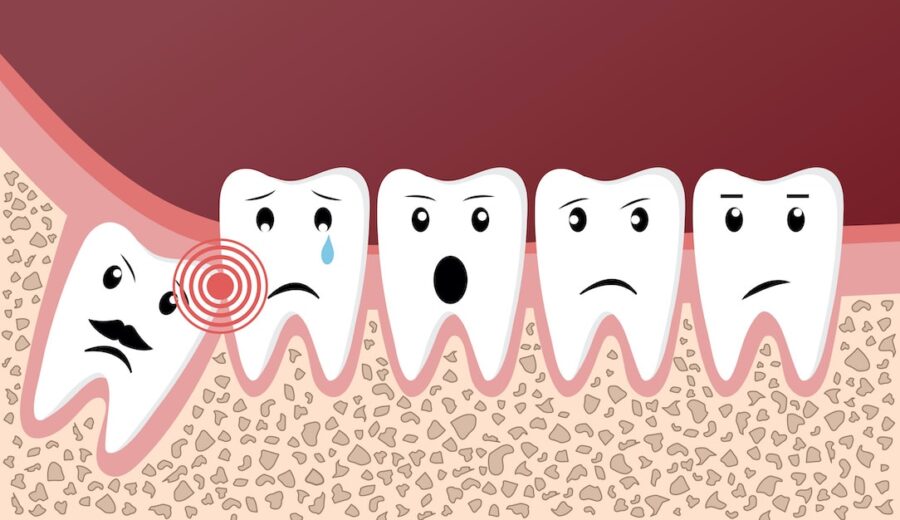
The types of night guards include:
- Custom-fitted: Your dentist uses a mold (impression) of your teeth to custom-make a mouthguard that comfortably fits your teeth and mouth. Custom-fitted mouth protectors cost more, but they provide the best fit and protection. A custom mouthguard will be made specifically for your needs, whether it be for protection from trauma during athletic competition or for use at night if you grind your teeth. A custom guard fitted by your dentist is of the highest quality and does the best job at protecting your teeth and mouth.

- Boil-and-bite: These mouth protectors are a thermoplastic material that you can shape at home to fit your teeth. You soften the mouthguard by placing it in hot (not boiling) water. You then put the softened mouthguard into your mouth and use your fingers to press it onto the molars and front teeth. When the mouthguard feels like it’s in the right position, you bite down for about 20 seconds. Then you remove the device and run it under cool water. You can repeat these steps to reshape the mouthguard for the best fit.
- Other adjustable over-the-counter mouthguards: Adjustable night guards often include sliding pieces that rest between your teeth while you sleep.
Why might wear a night guard cause mouth cancer?
Over time, the constant exposure to heat and pressure that occurs while wearing a mouthguard may lead to the formation of certain types of proteins in the mouth. This is known as oral dysplasia, and it is a precursor to oral cancer. Mouthguards are known to cause this condition, particularly children’s mouthguards, but it is unclear whether they also cause mouth cancer.

It has been suggested that wearing a mouth guard for several hours every day may increase the risk of developing mouth cancer, particularly in people who are genetically predisposed to the condition. In particular, the nightguard is thought to be responsible for causing oral dysplasia, which is why many dentists recommend that people do not wear them.
What are the symptoms of mouth cancer?
Mouth cancer can only be diagnosed after the formation of a lump in the jaw which could be cancerous. The location of the lump can indicate what type of cancer it is:
Tongue: This type of cancer is less common than others, and it is often diagnosed at an advanced stage.
Lip: This type of cancer is more common, but it is still relatively rare.
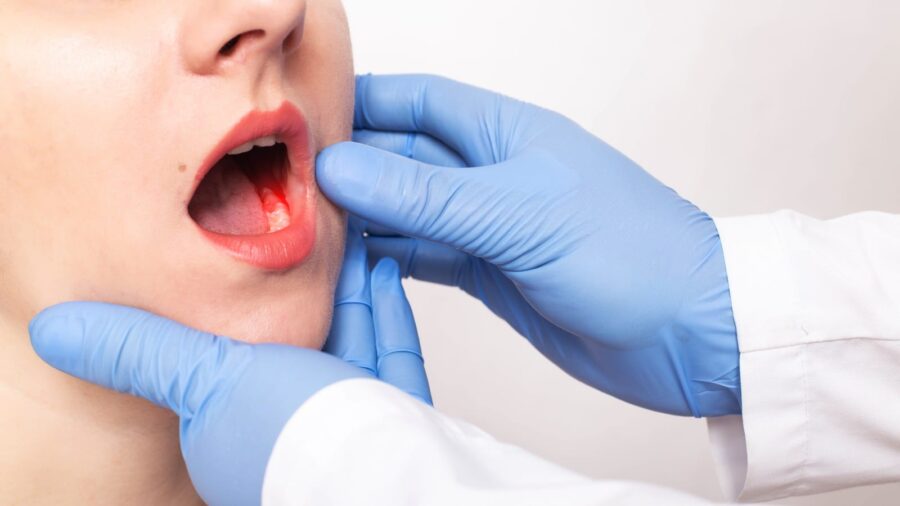
Floor of the mouth: This type of cancer is also relatively common.
Palate: This type of cancer is less common, but it is still relatively rare.
Gum: This type of cancer is relatively common.
Roof of the mouth: This type of cancer is less common, but it is still relatively rare.
How is mouth cancer diagnosed?
If an individual is experiencing any of the symptoms of mouth cancer, they should visit the dentist for an examination. The dentist can diagnose mouth cancer by taking a biopsy of the lump, which will then be sent to a pathologist for analysis. The pathologist will determine whether the biopsy is cancerous and its precise type.
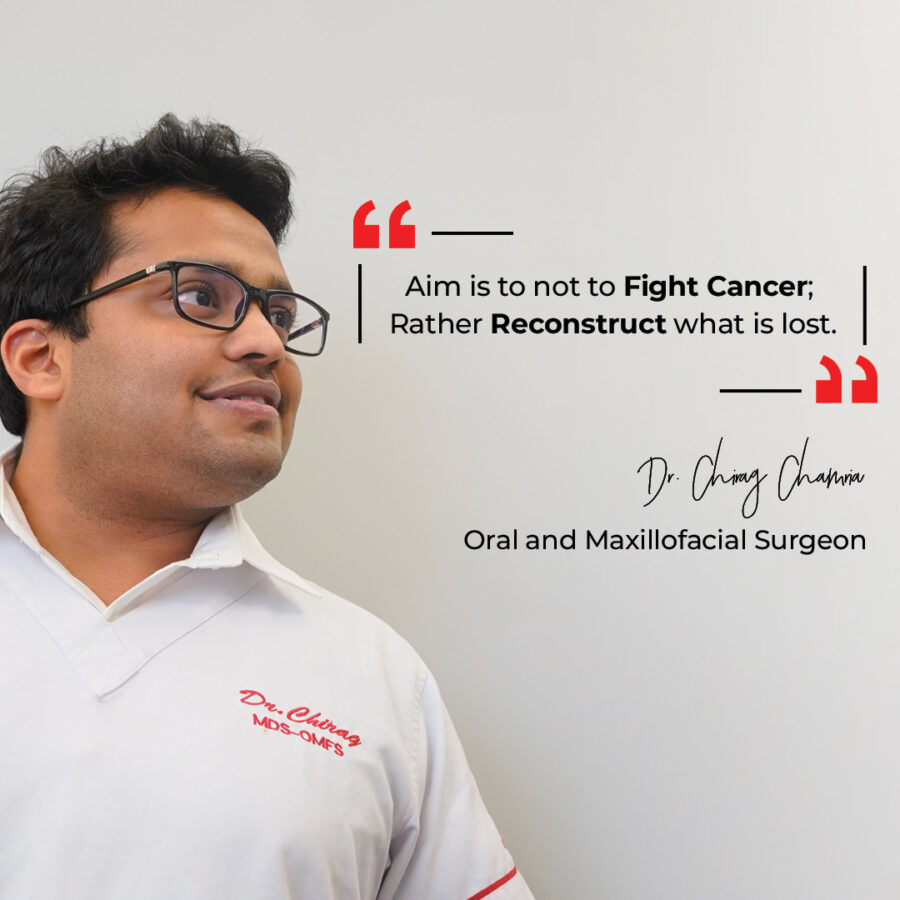
Tips for people who wear night guards
If you do wear a night guard and have concerns about the potential link between it and mouth cancer, there are certain steps you can take to reduce your risk. You could try to wear the guard for less time each day, or you could consider switching to a less heat-producing guard (such as a sports guard).
You could also try to reduce the other risk factors for mouth cancer (such as limiting your alcohol intake). If you do have concerns about your risk of mouth cancer, you should visit the dentist for an examination. It is possible to develop mouth cancer at any age, even if you have never worn a mouth guard in the past.
Final words
If you experience any of the symptoms of mouth cancer. You should visit the dentist for an examination as soon as possible. It is important that you are diagnosed as soon as possible so that the cancer can be treated successfully. Even if you have never worn a mouthguard in the past. You should be aware of the potential link between wearing one and developing mouth cancer.

